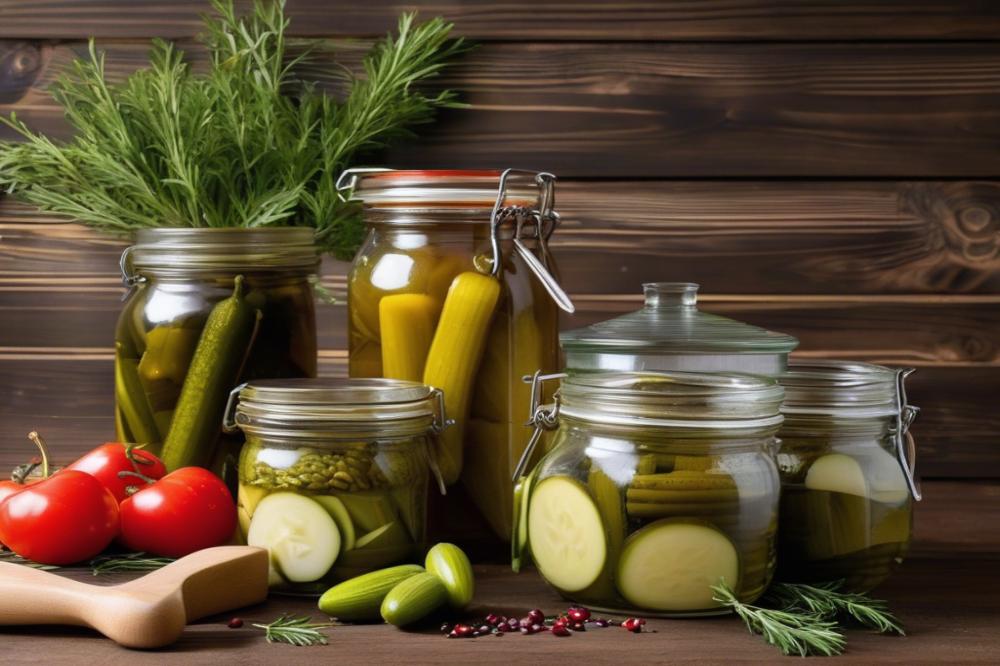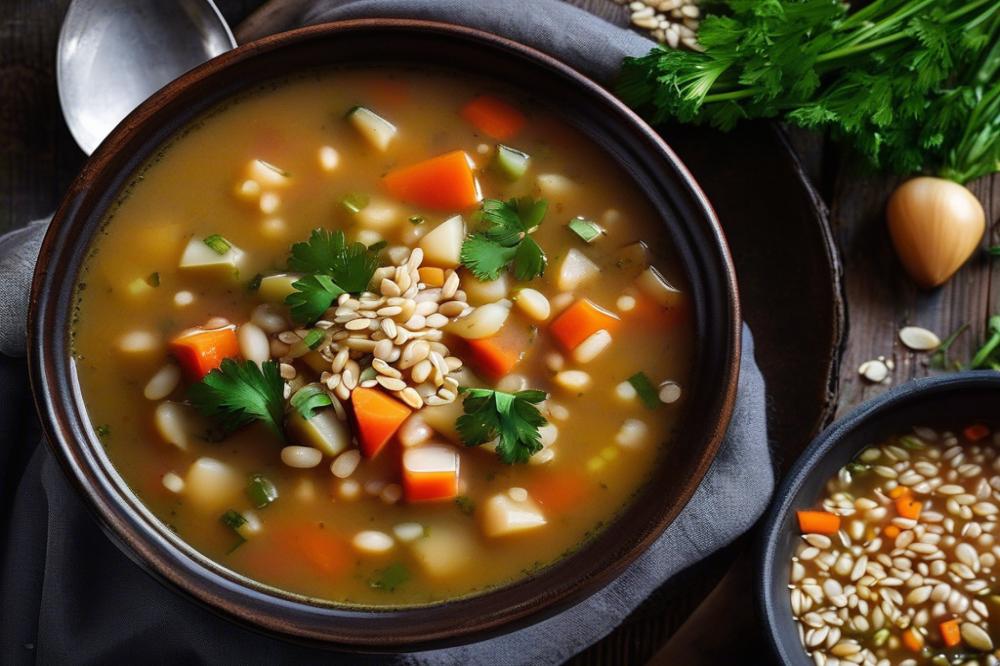Introduction
Polish pickles hold a special place in Polish cuisine, reflecting the rich history and culture of the region. They are not just a snack; they are a symbol of the traditional methods of food preservation. fermented pickles like Ogórki Kiszone offer a unique taste that many enjoy with meals. These cucumbers, brined with dill and garlic, bring an authentic flavor to every dish.
Fermentation plays a crucial role in our diets today. Foods that undergo this process, such as homemade pickles, are packed with probiotics. These beneficial bacteria help maintain gut health, boosting our immunity and enhancing overall well-being. Probiotic foods have gained popularity for their health benefits, and fermented pickles are an excellent choice for anyone looking to improve their eating habits.
Ogórki Kiszone is a traditional recipe that showcases the beauty of simple ingredients. Utilizing just cucumbers, dill, garlic, and salt, this dish embodies the essence of Polish culinary traditions. Vinegar is not the main component, which sets it apart from many other pickling methods. Instead, the natural fermentation process transforms these ingredients into a delicious treat that many cherish. Making your own fermented pickles at home is easy and rewarding, allowing you to enjoy a taste of Poland right from your kitchen.
The Appeal of Polish pickles
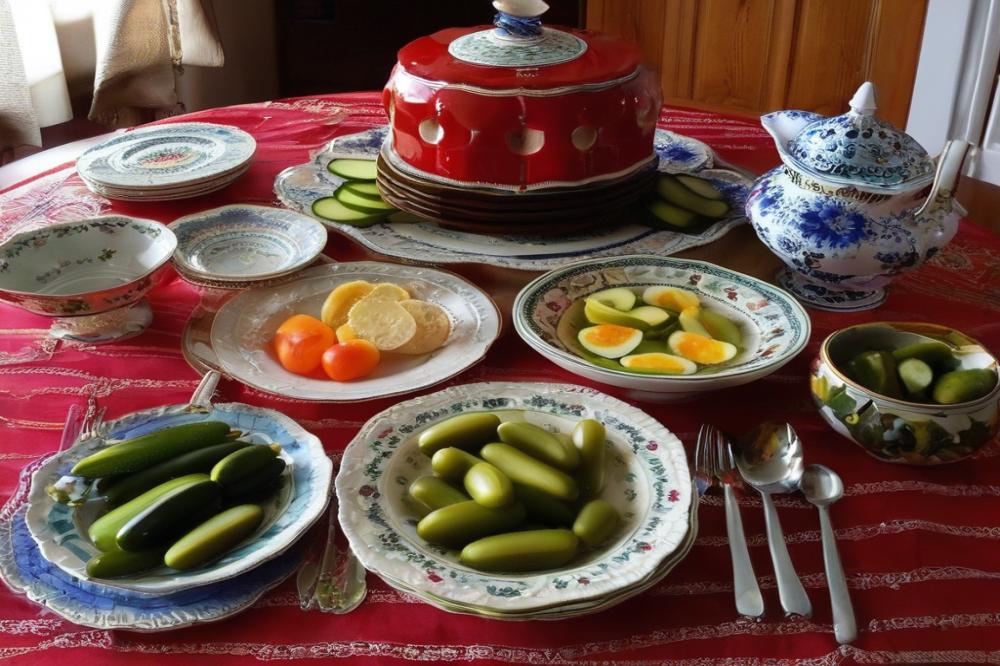
The Cultural Significance of Pickles in Poland
Polish cuisine thrives on tradition. One key element is pickles, which have become a staple in many households. These fermented pickles reflect the resourceful nature of Polish culture. In the past, preserving vegetables was vital during harsh winters. As a result, cucumbers, in particular, were often transformed into delicious, tangy treats. Homemade pickles symbolize not just preservation, but also family heritage. They can spark memories of gatherings and shared meals, connecting generations through taste.
Traditional Occasions for Serving Pickles
Various celebrations in Poland often feature these tangy delights. Holidays, like Easter and Christmas, commonly include pickles on the table. In many families, they serve as a side dish alongside main courses or appetizers. During summer picnics, homemade pickles can be found in every basket. Cultural events and feasts also recognize their role, adding flavor and joy to the festivities. Pickles enhance the overall meal experience, becoming a conversational piece among friends and relatives.
Health Benefits of Fermented Pickles
Fermented pickles come packed with health advantages. They serve as probiotic foods, which are essential for gut health. Eating these tangy treats can help digestion and promote a healthy microbiome. Additionally, they are low in calories and filled with nutrients. Including cucumbers, dill, and garlic adds extra health benefits. The fermentation process not only increases flavor but makes vitamins more accessible. People looking for a tasty way to boost their wellness may find homemade pickles an appealing choice.
Ingredients and Cooking Instructions
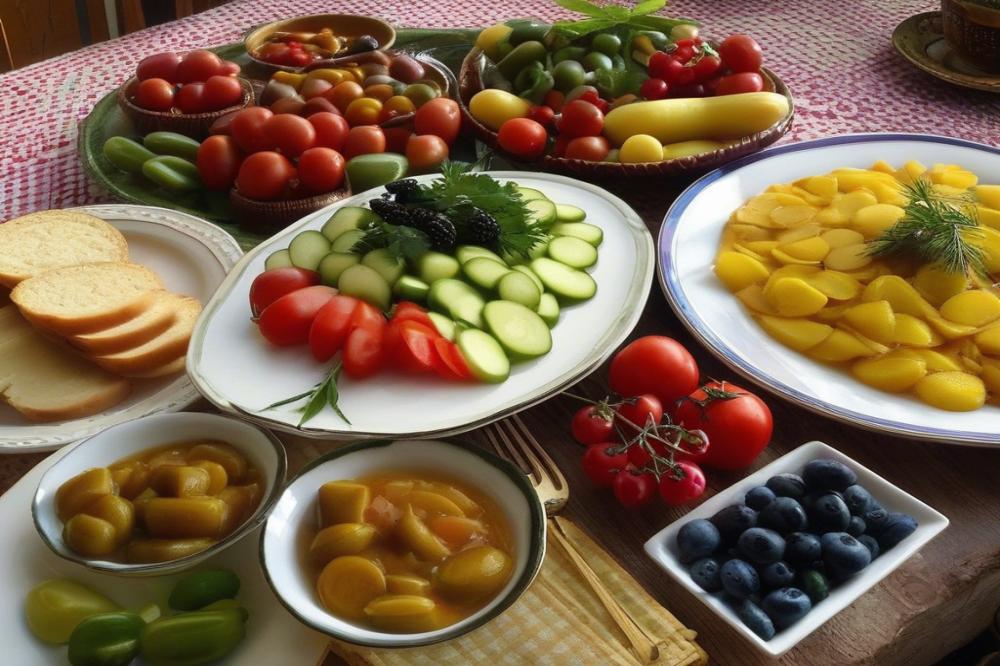
Ingredients List
- Fresh cucumbers (1 kg)
- Fresh dill (a handful)
- Garlic cloves (4-5, smashed)
- Water (1 liter)
- Coarsely ground sea salt (2 tablespoons)
- Optional: Black peppercorns, bay leaves
Cooking Instructions
To prepare Ogórki Kiszone, start with fresh cucumbers. Rinse them well to remove any dirt. Consider using small, pickling cucumbers for the best texture. Next, gather your fresh dill and garlic cloves. The dill adds a distinct flavor that pairs perfectly with cucumbers.
Once everything is ready, it’s time to make the brine. In a clean pot, combine 1 liter of water with 2 tablespoons of coarsely ground sea salt. Stir the mixture until the salt completely dissolves. This step is crucial for the fermentation process. You may also add optional spices like black peppercorns or bay leaves for extra flavor.
Now, take a large jar and place a layer of dill at the bottom. After that, add the smashed garlic cloves. Pack your cucumbers tightly in the jar, standing them upright. This is important to prevent them from floating. Add more dill on top for good measure.
Pour the prepared brine over the cucumbers. Make sure all pickles are submerged. If necessary, you can weigh them down with a clean stone or a small plate. This helps in the preservation process.
Seal the jar loosely to allow gases to escape during fermentation. Store it in a cool, dark place for about 1-2 weeks. Check daily to ensure the cucumbers are submerged. Taste a pickle after a week to find your preferred sourness. Fermented pickles continue to develop flavor, so patience is key!
Tips for the Fermentation Process
Temperature plays a significant role in fermentation. A cooler environment slows down the process, while heat speeds it up. Make adjustments as needed. If you see mold on the surface, skim it off. This is common and should not affect your homemade pickles.
Nutritional Information for Each Ingredient
Fresh cucumbers are low in calories and high in water content. They offer hydration and crunch. Dill is not just tasty; it’s also rich in antioxidants. Garlic has numerous health benefits, including immune support. Sea salt is essential for the fermentation process, providing the necessary environment for probiotics to thrive. When fermented, these foods turn into powerhouse probiotic foods, promoting gut health.
The Fermentation Process
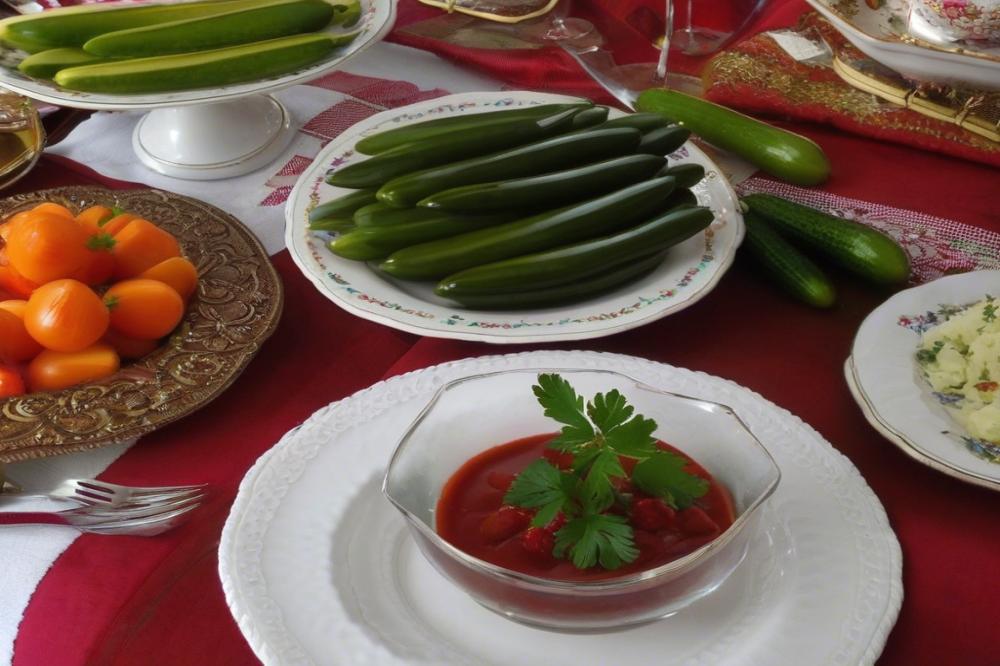
Understanding the fermentation process is key for making homemade pickles. This method uses simple ingredients like cucumbers, dill, and garlic, but it transforms them into something extraordinary. Fermentation occurs when natural bacteria break down the sugars in vegetables. This process not only adds flavor but also preserves the food.
Temperature plays a prominent role in fermentation. The ideal range is between 65°F and 75°F. If the environment is too warm, the fermentation can speed up excessively. Cooler temperatures slow it down, which could lead to spoilage. Timing is just as essential. In general, leaving your cucumbers to ferment for one to four weeks yields the best results. Taste testing along the way helps you determine when they reach the perfect tanginess.
Fermented pickles fit into the category of probiotic foods. These beneficial bacteria can help improve digestive health when consumed regularly. Unlike vinegar-based pickles that you might find in stores, fermented versions embrace the power of natural fermentation. The probiotics formed during this process contribute positively to our gut flora. Eating just a few raw, tangy Polish pickles not only expands your palate but also supports overall wellness.
This traditional recipe combines simple techniques with nature’s magic. Many people appreciate the benefits of keeping homemade pickles on hand. They can add zest to meals and snacks while also providing health benefits. Experimenting with your fermentation process could lead to unique flavors. So, get ready to add some crunchy, savory goodness to your Polish cuisine experience!
Variations and Serving Suggestions
Different Ways to Prepare Polish Pickles
Many methods exist to prepare these delicious fermented pickles. Some prefer a traditional recipe that uses just salt and water, while others enjoy adding spices. Mustard seeds, black pepper, and chili flakes can create a kick that surprises the taste buds. Experimenting with different types of cucumbers can bring out various flavors as well. For a more tangy taste, consider adding a splash of vinegar. Variations with different herbs, like basil or even hot peppers, provide exciting twists. The choice of garlic can also impact the final flavor. Using whole cloves versus minced garlic may yield different results.
Traditional Polish Dishes That Pair Well with Ogórki Kiszone
Polish cuisine features many dishes that complement the crunch of homemade pickles. Serve them alongside hearty soups like żurek, a sour rye soup that balances perfectly with the tangy taste of pickles. Additionally, grilled meats, such as kiełbasa, can benefit from the refreshing flavor of fermented pickles. A classic potato salad can also take on a new life when paired with the tangy crunch. Many people enjoy the contrast of pickles with rich dishes, making each bite more delightful. Polish holidays often feature these pickles on the side of various meals.
Creative Uses for Fermented Pickles in Modern Cuisine
In contemporary cooking, fermented pickles find unique roles beyond traditional serving. Try adding chopped pickles to sandwiches for a zesty crunch that enhances flavor. Some chefs incorporate them into salads or grain bowls, bringing probiotics to everyday meals. Blending pickles into a tart dressing can give your salads an unexpected twist. Additionally, pickles can shine in savory cakes or muffins, subtly enhancing the flavor. They can even replace salt in certain recipes, providing zest while maintaining a healthier profile. With their probiotic benefits, using them in modern cuisine becomes a delicious way to boost nutrition.
Wrap-Up: Embracing the Art of Fermentation
Polish pickles play a significant role in culinary traditions, enhancing meals with their tangy flavor and crunchy texture. They are more than just a side dish; they reflect a rich history and a culture that values homegrown food. Fermented pickles are a staple in many households, bringing both nostalgia and nourishment to the table.
Trying to make Ogórki Kiszone at home can be a rewarding experience. It offers a chance to connect with Polish culture while creating something delicious. Follow the steps outlined in this article, and soon you’ll be enjoying these tasty treats straight from your kitchen. Plus, making this dish allows you to customize the flavors to your liking. Feel free to add garlic, dill, or even chili peppers for a little spice!
Homemade fermented foods have numerous benefits. They are not only tasty, but they also support gut health, thanks to the probiotics developed during fermentation. Eating these foods can improve digestion and boost your immune system. Overall, engaging in this culinary activity fosters a sense of accomplishment. You’ll feel proud serving homemade jars of this savory delight to your friends and family.
So, roll up your sleeves and give this a try. Experience the joys of Polish cuisine and the great satisfaction of preparing your own Ogórki Kiszone. You won’t just be making a snack; you’ll be preserving a tradition. Your taste buds and body will thank you for it!

